There is little doubt that Bollywood has given the world several memorable films, but what’s also true is that it has been a journey of learning, unlearning, and relearning. Here, we pick six films that feature inappropriate messaging, and incorrect depiction of certain communities. It’s crucial to consider that over time, makers have evolved, and now, Indian cinema is gradually shifting focus to more inclusive subjects, portrayals, and sensitive handling of controversial topics.
Dilwale Dulhania Le Jayenge (1995)
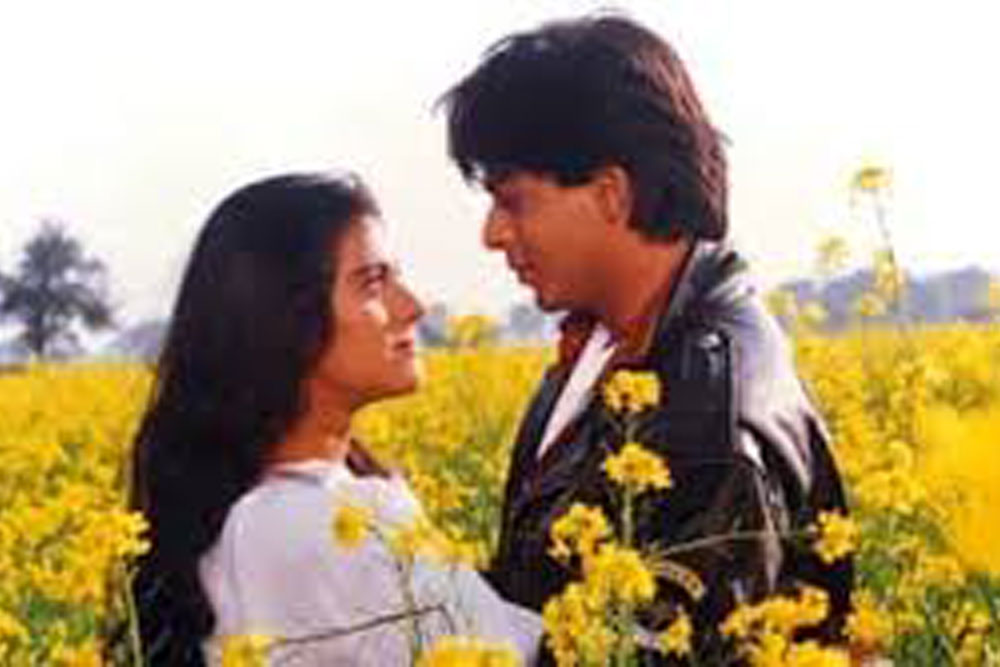
The iconic film completed 25 years in October 2020, and what a run it has been! The movie, which continues to be showcased in Mumbai’s Maratha Mandir, boasts memorable songs, locations, scenes; above all, when one mentions chemistry, Raj and Simran (essayed by Shah Rukh Khan and Kajol respectively) have for long enjoyed the ‘benchmark’ status.
However, the movie has also pedaled problematic ideas. First up, Simran is to be married to Kuljeet Singh (Parmeet Sethi), an alliance which was fixed when she was a toddler (sigh). As an adult, she isn’t even asked to consent, she is simply expected to follow. A clear example of patriarchy/misogyny wherein the patriarch’s decision is final, and conversation is not an option. Babuji’s zabaan (commitment), after all.
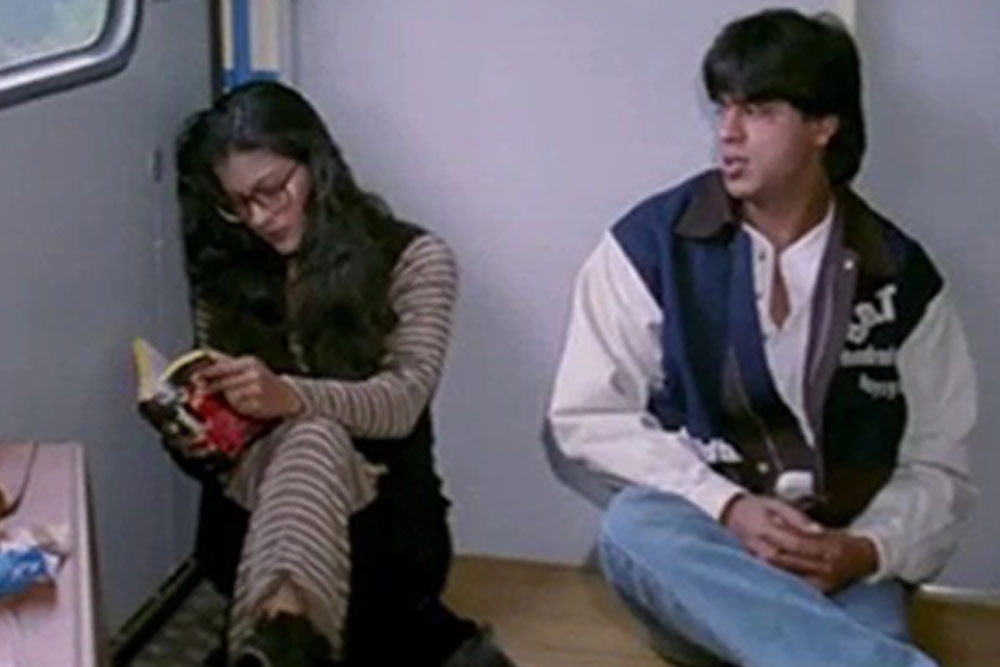
The first time Raj and Simran meet each other in the compartment of the train, the former’s antics qualify as harassment. The bra flinging, invasion of space, and suggestive singing have conveniently been passed off as ‘funny’. No laughing matter, this, we say.
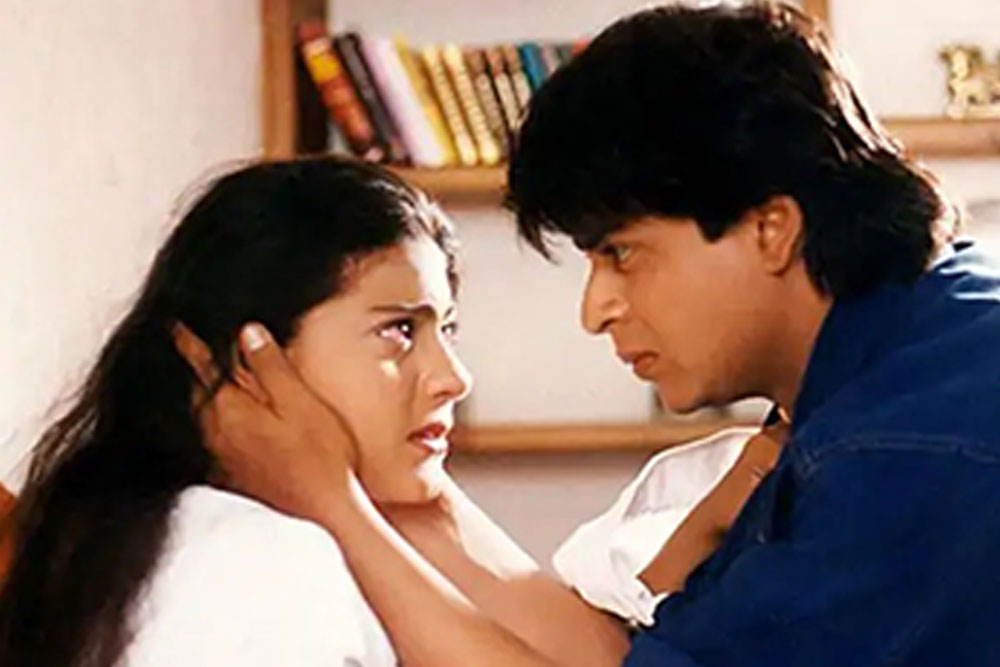
And let’s not get started on the scene where Raj ‘jokingly’ suggests that he and Simran slept together, and the latter begins to weep. Then comes the dialogue of all, “Mai janta hoon ki ek hindustani ladki ki izzat kya hoti hai.” Of course, how can we forget that a woman’s sexual purity is linked to khaandaan ki izzat.
Kuch Kuch Hota Hai (1998)
If you grew up in the ‘90s, there’s no way Rahul-Anjali’s (Shah Rukh Khan and Kajol respectively) bond didn’t spell #friendshipgoals for you. However, decades later, we don’t wish such friends upon anyone. Think of it, strangely, all the love came to fruition only when Anjali ditched her short hair and athleisure wear for sarees, longer hair, and winged eyeliner. Anjali didn’t deserve Rahul, and we absolutely root for Anjali and Aman’s (portrayed by a dashing Salman Khan) wedding!
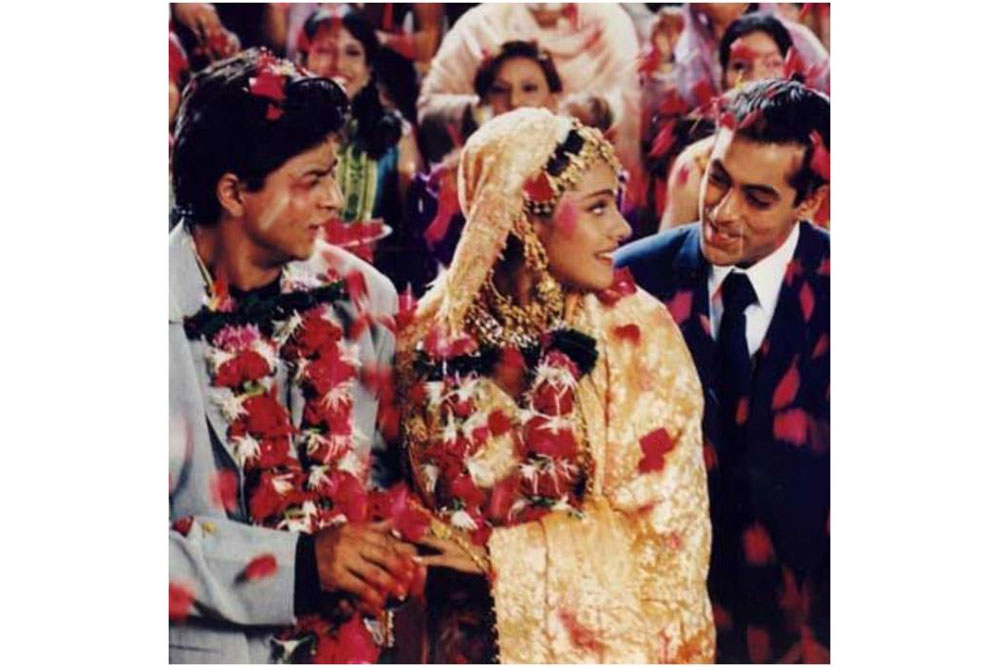
And Rahul always maintained — Hum ek baar jeete hain, ek baar marte hain, shaadi bhi ek baar hoti hai, aur pyaar bhi ek baar hota hai. Then? Eating your own words in a span of two hours, Mr Rahul Khanna? No wonder it took years of learning and unlearning to realise that beauty is not restricted to a particular colour, shape, or size.
Haseena Maan Jaayegi (1999)
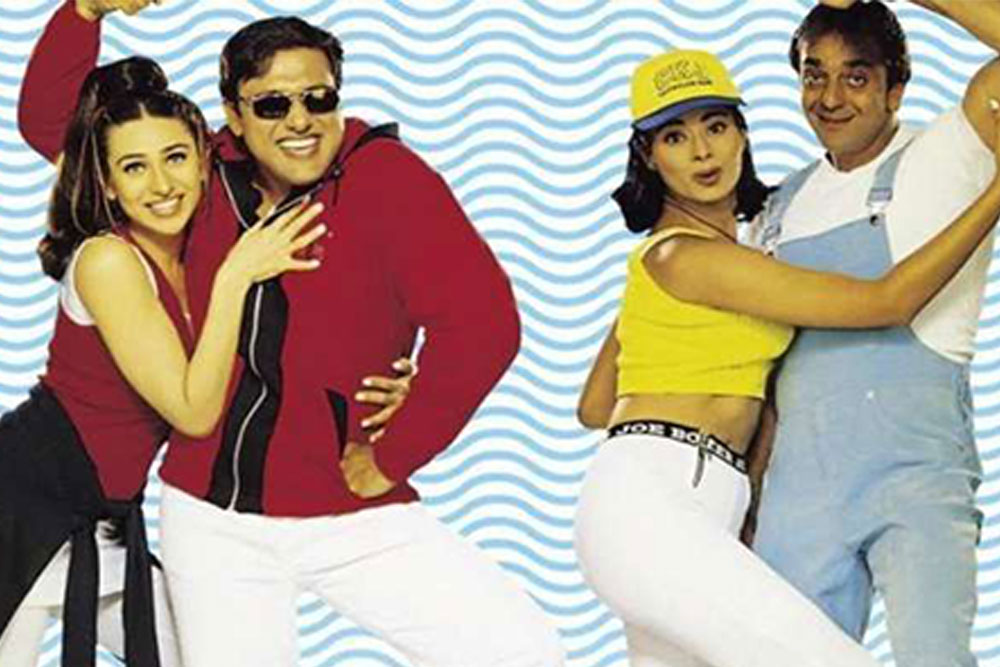
Remember that track—kabb takk roothegi cheekhegi chillaegi. Dil kehta hai ek din haseena maan jaayegi? As kids or adults in the ’90s, most are guilty of dancing to the tunes of this popular song. But, if you had to pay attention to the lyrics, you will (or we hope) stop. This number blatantly propagates the idea of harassment, and the notion that women are synonymous with tantrums. Plus, if you’ve watched the film, both Govinda and Karisma Kapoor and Sanjay Dutt and Pooja Batra’s love stories are rooted in manipulation and badgering.
Tere Naam and Raanjhanaa (2003 and 2013)
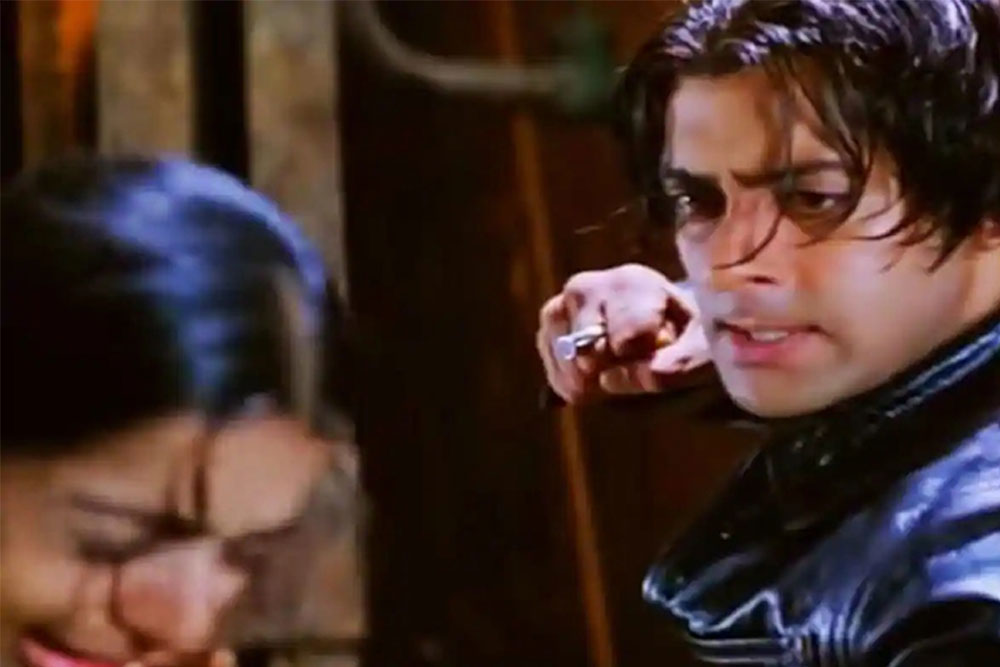
Both hits, both problematic. Let’s first address, Salman Khan and Bhumika Chawla’s Tere Naam. This film, and its many scenes, glorify stalking. Remember how Radhe Mohan keeps Nirjara captive? Simple because he is besotted with her and she doesn’t ‘understand’ his love? What’s disturbing is that the story presents the offender as a passionate lover. Are we to root for this unacceptable behaviour? No, we don’t.
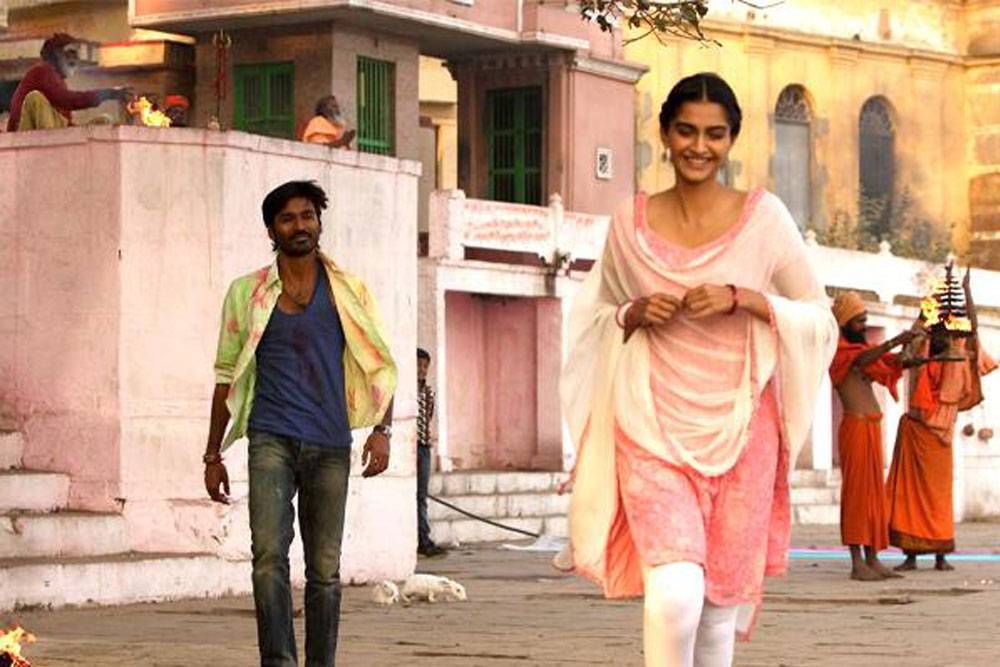
Dhanush and Sonam Kapoor-starrer Raanjhanaa too equates stalking with loving. “Subah se shaam peechha karo, ghar ke bahar, school ke bahar, bazaar mein, sadkon pe, cycle pe, riksha pe, tempo mein. Ro do, khaana khana chhod do. Wazan ghata lo. Ladki ko itna thaka do ke woh thak ke haan bol de.” Need we say more?
Pyaar Kiya To Darna Kya (1998)
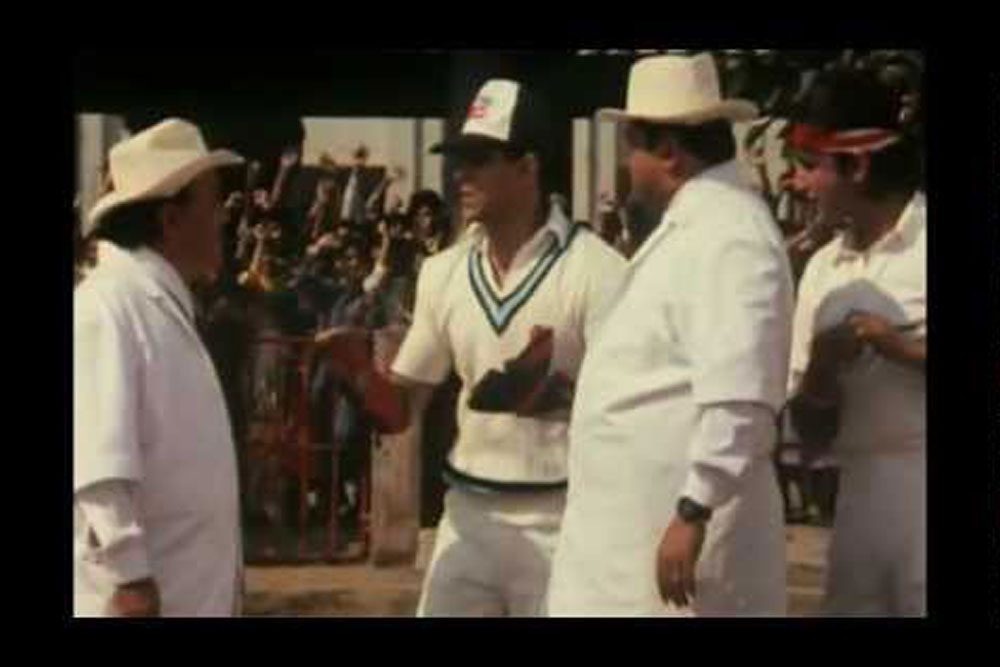
Girl meets boy, boy meets girl, they fall in love, the boy’s mother doesn’t approve of the girl (because, money is everything), boy fights villains, mother approves of the girl, the end. This is primarily the plot of the film. Alright, this isn’t a movie review. But did you notice that the gay character, who is part of Salman Khan’s group of friends, is merely present to invoke laughs? No, no gay man is out there to touch you inappropriately or bite his lips suggestive of an uncalled for intention. This is a tone-deaf portrayal of the community.
Moving on, Salman Khan and Kajol dance to the tunes of ‘Chhad Zidd Karna’ in the movie and one of the lines of the track is – jaan le meri jaan, meri na mein hai haan. Okay.
Thank god for sensitively made films such as Kapoor & Sons and Aligarh.